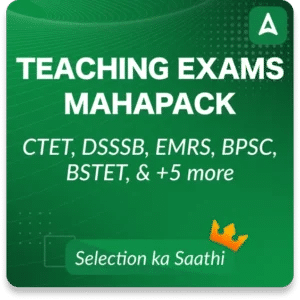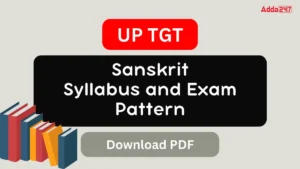Table of Contents
Remedial teaching in the English language is a specialized approach designed to provide targeted support and assistance to students who face challenges in their language proficiency. This form of instruction aims to address individual learning gaps and difficulties, enabling students to overcome obstacles and improve their English language skills. Whether grappling with reading comprehension, writing fluency, grammar usage, or pronunciation, remedial teaching offers tailored interventions that cater to the specific needs of each student.
By fostering a supportive and nurturing learning environment, educators can empower students with the tools and strategies necessary to build confidence and competence in English. Remedial teaching not only helps bridge the linguistic divide but also fosters a sense of accomplishment and a renewed enthusiasm for language learning, unlocking new doors of opportunity and success in both academic pursuits and everyday communication.
What is Remedial Teaching in the English Language?
Remedial teaching in the English language is an educational approach that aims to provide additional support and assistance to students who are experiencing difficulties in learning English. Remedial teaching focuses on identifying and addressing the specific areas where students are struggling, such as reading, writing, grammar, vocabulary, or pronunciation. Read the following pointers for better clarity.
(i) Remedial teaching is the teaching or instructional work carried out to provide remedial measures to help the pupils to get rid of their common or specific weaknesses.
(ii) Thus, depending upon the general or specific nature of the weaknesses or learning difficulties of the pupils, one has to take appropriate steps for the organisation of remedial teaching for the needy pupils.
(iii) Pupils usually may have one or more than one of the following learning difficulties
• Poor memory.
• Short attention span and easily distracted by other things.
• Relatively poor comprehensive power. Lack of learning motivation.
• Lack of self-confidence and relatively low self – expectation.
• Weak in problem-solving power.
• Fail to grasp information effectively and mix things up easily.
• Have difficulty understanding new/abstract concepts.
• Need more time to complete assignments or tasks.
(iv) Remedial teachers should design diversified: teaching activities and adopt various teaching methods to help pupils develop their potential and remove the obstacles in learning.
Objectives of Remedial Teaching
Each pupil is different in terms of academic standards, classroom learning, learning ability and academic performance.
• The main objective of the Remedial Teaching Program is to provide learning support to pupils who are not as good as theirs peers in performance.
• With the help of school curriculum and teaching strategies, a teacher provides learning activities and practical experiences to pupils according to their abilities and requirements.
• Teacher also designs individualized educational programs with intensive remedial support to help pupils consolidate their basic knowledge in different subjects, master the learning methods, strengthen their confidence and enhance the effectiveness of learning.
• Teachers should provide systematic training to develop pupils’ generic skills, including interpersonal relationships, communication, problem-solving, self-management, self – learning independent thinking, creativity and the use of information technology.
• Remedial teaching lays the foundation for pupils’ life–long learning, helps them develop positive attitudes and values, as well as prepares them for future studies and careers.
Principles of Helping Pupils’ with Learning
Difficulties Principles of helping pupils with learning difficulties are
i. Teaching Preparation- Before preparing their lessons, teachers should identify pupils’ diverse learning needs as soon as possible, so that they may design appropriate teaching plans to facilitate pupils’ effective learning.
ii. Devise Various Learning Activities- Teachers must devise different learning activities with the same teaching objective to develop pupils’ varied abilities and skills in problem-solving. It is more effective for teachers to adopt a series of relevant and simple teaching activities than assigning one long teaching activity.
iii. Design Meaningful Learning Situations- Teachers should specifically design meaningful learning situations, language environments (especially for English), games or activities so as to provide personal learning experiences for pupils and stimulate their interest and initiative in learning.
iv. Teaching Approaches- Teachers should give concrete and valuable examples before proceeding to abstract concepts by way of simple and easy steps at a pace in line with the learning abilities of pupils. Teachers should encourage pupils’ active participation by more frequent use of teaching aids, games and activities. They can also make use of information technology and all the teaching resources available to help pupils understand the main points.
v. Provide Clear Instructions- Pupils with learning difficulties are less competent in understanding written language. Therefore, teachers should give pupils short and clear instructions to avoid confusion. They must explain clearly the arrangement of each learning activity.
vi. Summarize the Main Points- In the course of teaching, teachers should always sum up the main points in teaching and write the key phrases on the board to enhance pupils’ audio and visual memories. Teachers can guide their pupils to link up the knowledge they learn from class with their life experiences so as to enhance the effectiveness of learning.
vii. Enhance Learning Interest and Motivation- Pupils’ with learning difficulties may lose their interest in learning. Therefore, teachers should adapt the curriculum to meet the needs of pupils. With fewer pupils in the Remedial Teaching Program, teachers can design interesting activities coupled with reward schemes to stimulate pupils’ interest.
viii. Encourage Pupils’ Active Participation in Class-Activities Pupils with learning difficulties usually lack self-confidence and are more passive in class. They seldom ask questions or express their views. Remedial teachers should patiently encourage active participation in class. Pleasurable learning experiences may help enhance pupils’ interest in learning
ix. Focus on the Learning Process- Teaching should not only focus on the transmission of knowledge. It is also important to see that pupils are benefited from the entire learning process. Teachers should provide ample opportunities in class for pupils to practice and think what they have learnt and allow them to solve problems by different means. Teachers should also carefully observe the performances of pupils.
x. Show Concern for the Performances or Individual- Pupils Teachers should carefully observe the learning class. Whenever the process of individual pupils in necessary, they should provide individualized remedial teaching before and after class, so that they can remove their learning obstacles as soon as possible. When marking assignments, teachers should take note of the common errors of pupils and deliver the correct concepts and knowledge to them promptly.
Curriculum Adaptation
1. Teachers should adapt the curriculum to accommodate the learning characteristics and abilities of pupils.
2. Teachers should set some easy teaching objectives to acquire knowledge.
3. Teaching should not be directed by textbooks which should not be taken as the school curriculum.
4. Schools should classify the teaching content into core and non-core learning aspects according to the teaching object and pupils’ abilities.
5. Core learning aspects require in-depth studies and application whereas materials in the non-core or advanced learning aspects may be streamlined or appropriately selected for teaching.
6. Teachers should be encouraged to adopt recommendations on cross-curricular teaching by linking up related teaching areas flexibly so that more time can be spared for effective activities and learning.
7. Teachers should be capable to design materials of different standards which could be taken from the internet, newspapers, magazines and references provided by the Education Department.
Strategies Remedial Teaching
1. Individualized Educational Program (IEP): To fulfil the learning needs of individual pupils, the Individualized Educational Program (IEP) aims to reinforce the foundation of learning, help pupils overcome their learning difficulties and develop their potential. Individualized Educational Programs should include short-term and long-term teaching objectives, learning steps, activities and reviews to ensure that the program is implemented effectively. Teachers must evaluate the effectiveness of the work and try to gather the opinions of pupils for improvisation and betterment.
2. Peer Support Program:
Teachers may train up pupils who perform better in a certain subject to become ‘little teachers’ and who will be responsible for helping schoolmates with learning difficulties in group teaching and self-study sessions as well as outside class. Peer support program helps pupils reinforce their knowledge, and develop their communication and cooperation skills as well as good interpersonal relationship.
3. Reward Scheme:
To motivate pupils, teachers must implement a reward scheme which focuses on guiding pupils to set their own objectives and plans, and positively reinforcing their good performance. To design the rewards, teachers must take note of the following
• Set clear and specific targets.
• Set achievable objectives.
• Give diversified rewards to accommodate pupils’ interests; give rewards instantly.
• Review and revise the reward scheme regularly.
• Invite parents/guardians to help children improve their work.
4. Handling Pupils’ Behavior Problems:
Teachers should observe the following when dealing with the behaviour problems of pupils:
• Always observe the performance of pupils in class and their behaviour in groups.
• Establish close relationships with pupils, develop mutual trust and listen carefully to what they say.
• Help pupils understand the effect of their behaviour on others as well as their own selves.
• Keep in close contact with parents to find out the cause of pupils’ behaviour problems.
• Help pupils build up self-confidence and a healthy self-image.
• Give positive reinforcement to pupils’ good behaviour, and do not pay undue attention to their misbehaviour.
• Do not try to change all the deviant behaviour of pupils atones.
• Refer the cases to counsellors/teachers for follow-up action if the behaviour problems of pupils continue or become serious.
Development of Generic Skills
Teachers should help pupils develop good learning habits and attitudes, such as completing the assignments tidily, keeping their promises and being responsible and disciplined. A constructive attitude is a foundation for lifelong self – learning and it helps enhance pupils’ learning effectiveness.
Teachers should train pupils to establish good interpersonal relationships so, as to facilitate effective communication and collaboration as well as to enhance the team spirit of pupils. Pupils can be taught to solve problems by different methods. Tools or drawing insight from their past experiences to develop pupils’ flexibility, creativity and independent thinking.
Download English Study Notes PDF




 Phases of Teaching - Stages of Teaching ...
Phases of Teaching - Stages of Teaching ...
 स्वर व व्यंजन - �...
स्वर व व्यंजन - �...
 UP TGT Sanskrit Syllabus and Exam Patter...
UP TGT Sanskrit Syllabus and Exam Patter...




